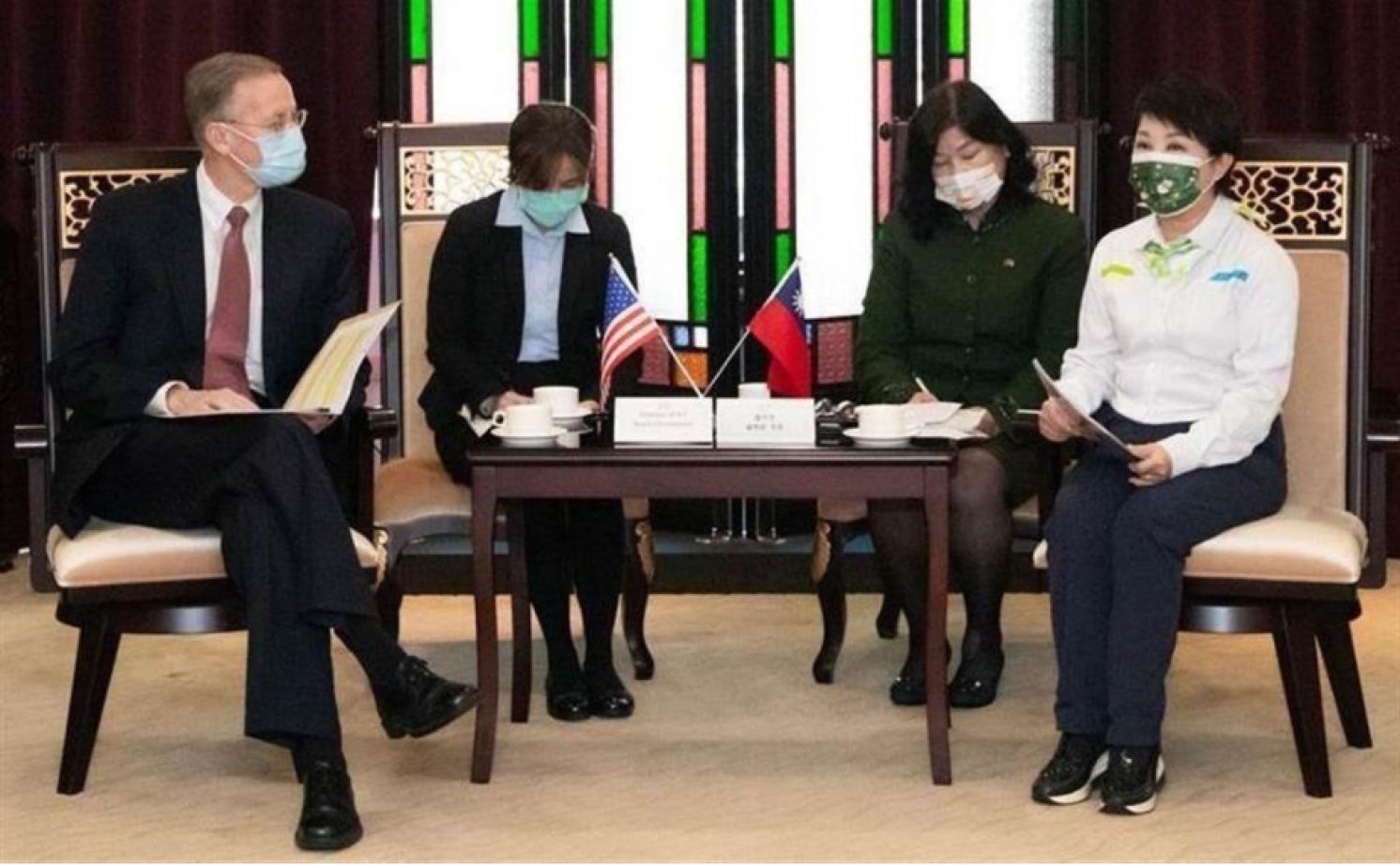
Please Excuse the Tough Mayor
The Storm Media, December 18, 2020
Taichung Mayor Lu Shiow-yen recently received the Director Brent Christensen of the American Institute in Taiwan (AIT) and directly expressed the municipal government’s opposition to importing pork containing ractopamine. In response, the AIT issued a statement, which is a rare act on the AIT’s part, stating that Taiwanese politicians have been spreading false information that causes unfounded anxieties among Taiwanese consumers. Regarding their interactions, opposers believe that Lu’s “political raid” falls short of diplomatic courtesy while supporters believe that Lu was clever and bold enough to take the opportunity to voice the public opinion.
Although public opinion on whether Lu was discourteous may vary, it is obvious that Director Christensen was indeed offended; otherwise, he would not have put out an unnamed but clearly targeted statement. Concerning this incident, there are several aspects worth contemplating.
1. First, is it considered discourteous to express public opinion in front of foreign ambassadors to Taiwan?
2. Second, does practicing diplomatic courtesy entail politicians having the responsibility to ensure the happiness of foreign ambassadors?
3. Third, should similar diplomatic meetings be kept behind closed doors lest they fall into the category of a “political raid”?
For a democratic nation like the United States, the answer to these questions may not necessarily be affirmative.
Therefore, what really surprised Director Christensen was probably Lu’s blunt opening, “Taking advantage of this opportunity, I must express….” However, instead of blaming Lu for putting Christensen on the spot, the better question should be why Christensen chose this particular crucial timing to visit Taichung. His visit was one week before Legislative Yuan’s vote and four months after disputes on pork containing ractopamine. Taichung’s local autonomy regulations are the strictest on food safety, so whether it is Christensen’s timing to visit Taichung or his expectation for the mayor to simply go through the motions, it both comes down to Christensen’s lack of careful planning.
Perhaps Taiwanese politicians’ usual welcoming and enthusiastic attitude towards the United States has given the AIT certain expectations, which in this incident led to disappointment. In fact, most people did not expect Lu to speak so directly to Christensen while being fully recorded and later broadcasted. Even though Lu’s action is deemed bold and strategic by those who oppose the issue of the import of pork containing ractopamine, it is definitely trouble to the DPP government whose public support has plummeted due to this same issue.
So did Mayor Lu really spread “false information,” as Director Christensen stated? To begin with, Lu did not claim that ractopamine is harmful to human health. What she said was “Taiwan’s food safety-related laws are quite strict.” Even the Ministry of Health and Welfare cannot consider this statement false. Lu went on saying, “Taichung City’s autonomy regulations on food security were enacted three years ago and both the city council and citizens of Taichung do not wish to have these regulations changed.” The purpose of this statement is to inform Christensen that the reason why Taichung opposes meat products containing ractopamine is due to both legal basis as well as the pressure of public opinion, which should not be considered “false information”.
Nowadays, not all diplomatic interactions should be kept from the public. On the contrary, disclosing necessary information and stating factual statements to the public eye can strengthen people’s trust in the government. Lu could have chosen to only “talk about the weather” publicly and not about “things that matter”. Lu could have also simply kept everything behind closed doors where she would not have to explain her words, whether blunt or not, to the public. This “smooth tactic” of reserving information from the mass has long been a norm to make things easier for politicians. For instance, no one knows how President Tsai Ing-wen came to the conclusion of unilaterally announcing the opening of pork imports containing ractopamine in August. To this day, the Office of the President has not provided an answer, nor can it be held accountable for this decision.
What should be surprising to everyone is Director Christensen’s reaction to the whole incident. As a mature diplomat, even if he was unexpectedly faced with what he considered a “political raid”, he should have had the capability to deal with this kind of situation with ease. When Lu directly expressed Taichung’s opposition towards the import of such pork, Christensen could have easily responded publicly, “All products exported by the United Sates to Taiwan and other trading partners are safe and free of concerns. These products follow the highest and evidence-compliant standards that are equally held for American domestic consumers.” In doing so, Christensen would have been in line with the AIT press announcement that was released earlier.
Rather than responding accordingly with a poised answer, the AIT chose to end the opening session in a rush. In addition, it appeared that the AIT did not make further expressions during the closed-door meeting that followed but instead issued a very displeased press release. Mayor Lu may or may not have been discourteous, but the AIT’s reaction was nearly out of line and out of the ordinary. After all, a foreign ambassador openly releasing a statement that criticizes the politicians of his stationed country does not comply with the diplomatic courtesy code either.
In order to make the AIT happy but at the same time taking into account the interests of Taiwan, our tough Mayor Lu could have also given the AIT a heads-up in saying “Please do not be offended, but it would be inappropriate for me not to state the facts and express the public opinion of my people.”
From: https://www.storm.mg/article/3307645
〈Back to Taiwan Weekly Newsletter〉